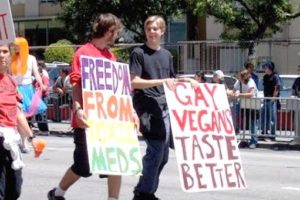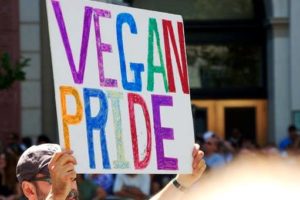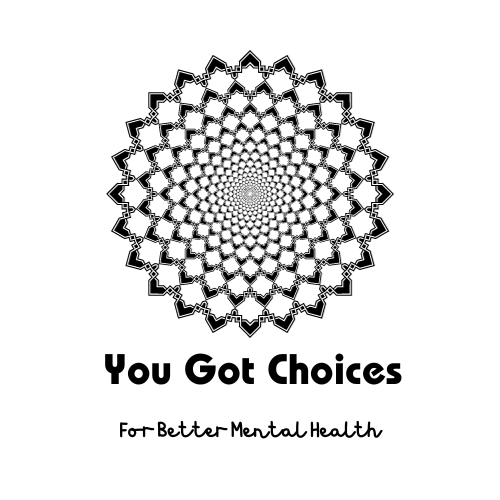When a friend from Israel turned towards me and asked about my views of veganism in the LGBT community, I was thrilled. For a while now I have been discussing the parallel lines of social justice of promoting rights of people as well as animals. I jumped at the opportunity to write a post for WDG, an Israeli website for the LGBT community. In the wake of the overwhelming approval of Massachusetts’ ballot question #3, I knew I needed to translate the article for my American folks. The ballot question prohibits certain methods of farm animal containment and the fact that it received 78% approval might signify a new wave of awareness, even among the unrest the 2016 election brought forth.
How do we promote LGBT rights and at same breath eat an Israeli breakfast with 2 eggs and cheese, what’s the difference between bestiality and eating meat, and why is it so difficult to come out as a vegan? I wrote to reveal the connections between LGBT rights and animal rights.
I remember the first time I encountered my own hypocrisy. I was 21 and just moved from Israel to Cambridge, MA. It was my first year attending college. My college adviser was a Jewish woman of whom I appreciated her contribution to academia. Very quickly we realized that we had similar professional and ethical views, yet our political views sharply conflicted. I grew up in traditional religious home in Jerusalem in the eighties and nineties of the last Millennia during the time of the Intifada and the upsurge in the Arab-Israeli conflict. I saw the conflict as a matter of survival. Contrary to me, my adviser self-identified as a Woman-In-Black. I knew them to be those who stood silently protesting at France Square near the prime minster home in Jerusalem. They hold signs demonstrating against apartheid, against occupation and identified with the anguish of the Palestinians. I did not understand them and I did not understand my adviser. My supervisor and I agreed that we will not talk politics and that way will keep the peace between us.
Over the years, with her dedicated guidance, I grew professionally and volunteered for various purposes prompting decency and human rights. And, at some point it hit me – how can I protect and support human rights overseas, but on the soil of my childhood country, the Land of Israel, I am blind to the appalling conditions of the Palestinians and Israeli Arabs? It took me a little more time before coming out and identifying myself as a left-wing-liberal concerning the political matters in Israel. Rights are rights, so I came to understand.
A couple of years later and I met my partner, my current husband. He was vegetarian, and I related with his opinions and his fairness towards animal rights. Again, I came face-to-face with my hypocrisy. I fight and stand alongside the rights of people, so why not animals? Is an animal soul lesser than mine? Whatever the answer to that question may be, they, too, have the right to live. So I became a vegetarian and matters of social justice ran even deeper inside me.
But the change did not stop there. Over the years I came out as bisexual, polyamorous, and kinky. I became a sexual educator and was a strong voice in the Israeli LGTB community for the sake of fairness of marginalized communities. The change I experienced personally regarding the Israeli-Arab political matters and in the field of animal rights, was connected simultaneously to the rights of all to live in freedom.
When I met a woman who shortly after became my girlfriend, she was vegan and influenced me further. I quickly became vegan as well. I awakened into the realization that my faith for all to live in free must include the right of all human and animal life. The idea that animals should live in cages just to provide me nutritious eggs and delicious cheeses was not worth the hypocrisy I imposed on them. How can you possibly fight sexual freedom, gender equality and promote LGBT rights, and in the same breathe eat an Israeli breakfast with two eggs and sliced cheese? In recent years, the voice of the LGTB community’s has strengthened with activists and allies who fight for justice. But who is fighting for the animals’ right to live?

While an LGBT identity is not a choice, there is a choice in coming out and encouraging dialogue and change in lieu of the norm in society. Once community members decide to fight ignorance, hatred and discrimination, which stem from society’s norms, the passion to fight for animal rights seems obvious, and the choice to stand up as a vegan for animal rights also becomes apparent.
It may be possible to conclude that the reason that Tel-Aviv has so many vegan restaurants and vegan options is because the city is bursting with LGBT activists. The same could be said in the USA. When comparing the list of cities with the most lesbians in the US to the list of the most vegan cities in the US, there is a clear overlap. Out of 10 most vegan cities for 2016, 6 of them are also in the list of highest population of lesbians (and happily, I moved to live in one of them). While this study is far from being accurate, one cannot ignore the context.
Justice must come from the group that has the power to change
I am not alone in the connection I see. There are many people who when fighting for social justice in one particular dimension awaken to injustice in another. Once one becomes awake it is hard to keep the blinders on and you may see other causes for social change more clearly. Currently there is a strong presence of LGBT activism within Israel, at least in Tel-Aviv. But it is not unique to Israel.
There is a LGBT activists group called The Hen House who strongly sees the connection between animal rights and gay rights. The group released a video on the subject, interviewing dozens of people in the gay community that saw fit to take action on behalf of animals.
So what are they saying? The short of it is this: the choice to incorporate animal rights into social activism is a liberating step; the discourse on food is social activism as well.
The Hen House points out that coming out of the closet as gay or vegan could hold similar experiences. Both of these measures indicate and reflect who you are. They both put challenges in front of the people closest to you.
Some people who come out as vegan to their family find it almost as hard as coming out gay. The family may not understand what you will eat around the family table during holidays and family members might see this step as a personal defiance against them. They may question why you cannot just be normal?
This may happen not just within the family. Many people may question your lifestyle that differs from the norm, both as a LGBT person and as a vegan. You are obviously just making things harder on yourself.
The findings of The Hen House exemplifies that among activists in the animal rights movement you can find a majority of LGBT folks. Many of those individuals discovered the animal welfare movement while acting in the HIV movement in particular, and and LGBT rights in general. The two issues, taking place in the arena of social justice, churn strong emotions and encourage one to examine unjust behavior towards other weaker individuals. When we choose not to eat an animal we save one more animal from death. When someone eats an animal they are collaborating with murder. Why would any social activist want to take part in the mass murder of any living creature?
The group emphasizes that social action promotes social visibility. When someone is an activist they take something hidden from the majority of society, raising it to social consciousness and thus making the issue visible. When we fight for LGBT rights it seems logical to continue the social activism for animal welfare and make visible the anguish imposed on them.
One reason we may find regarding the majority of LGBT individuals in the animal rights activism, could be because they tend to be compassionate towards the weak. Most community members have suffered violence and discrimination throughout their lives. They understand that in order to promote justice, bridge change and successfully fight for the rights of disadvantaged communities you must have cooperation with allies, who represent the majority society. No movement for social justice has ever succeeded without such cooperation. In order to promote justice for dis-empowered groups, justice must come from the group that has the power to change. LGBT individuals are aware of this firsthand. Therefore, when taking into account the rights of animals, the insight that people should be allies to animals becomes evident. Animals have no voice among humans. They cannot come to the square and democratically protest for their rights with signs in order to change their conditions. Here we humans come in.
The thin line between normalcy and deviancy
After I found that my underlying thoughts aligned with the wise insights of this group, my choice as a bisexual, polyamorous queer to be vegan became obvious. But the analogy does not stop there.
Jesse Bering, an outspoken and eloquent gay writer, in his book PERV, The Sexual Deviant in All of Us, explains at length the thin line between norm and deviancy. He cites many examples that raise the question: “Who decides what is deviate and what is normal?” this is a crucial question, for many around the world still consider an LGBT identity and lifestyle an aberration. Is there a connection between this and animal rights?
Bering brings forward a story about bestiality (pages 53-54). Bestiality is a kink or action in which a person has (or imagines) sex with an animal. In most cases in history, whoever was caught having relations with an animal was executed. Still today it considered animal abuse that could result in a prison sentence, for legitimate reasons.
As someone who really loves animals, in a platonic way, of course, the protection of animals against sexual exploitation is obviously important. However, where is there more damage? When we kill an animal for the sake of our appetite, or when one is having sex with an animal?
In both cases, there is no consent on the part of the animal, so why is killing for the sake of food so widely acceptable while sex with an animal is always prohibited? There may not be a clear answer, and the mere question bring many the urge to ring me out, but it a wonderful thought experiment. If we think that killing an animal is fine but sex with an animal is abuse and rape, then, when it comes to violence of people against people, why is it so difficult for us to punish rapists, while murderers often get life sentence? The seemingly implicit moral code towards animals and people are not compatible at all. I find that abhorrently wrong.
In the context of the LGBT community this line seems a bit more obvious and streamlined. A right to life is a right to live. Probably, when you are in a community who is often excluded from rights, it is simply impossible to ignore the discrimination and the need for social justice.

